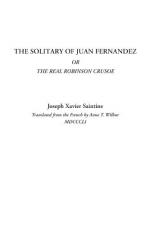[Footnote 1: Agouti. An animal of the bigness of a rabbit, with bright red hair, and a little tail without hair. He has but two teeth in each jaw; holds his meat in his forepaws like a squirrel, and has a very remarkable cry: when he is angry, his hair stands on end, and he strikes the earth with his hind feet; and when chased, he flies to a hollow tree, whence he is expelled by smoke.—Trevoux.]
[Footnote 2: The coati is a native of Brazil, not unlike the racoon in the general form of the body, and, like that animal, it frequently sits up on the hinder legs, and in this position carries its food to its mouth. If left at liberty in a state of tameness, it will pursue poultry, and destroy every living thing that it has strength to conquer. When it sleeps it rolls itself into a lump, and remains immovable for fifteen hours together. His eyes are small, but full of life; and when domesticated, this creature is very playful and amusing. A great peculiarity belonging to this animal is the length of his snout, which resembles in some particulars the trunk of the elephant, as it is movable in every direction. The ears are round, and like those of a rat; the forefeet have five toes each. The hair is short and rough on the back, and of a blackish color; the tail is marked with rings of black, like the wild cat; the rest of the animal is a mixture of black and red.]
Alas! this general quiet does but deepen in the heart of Selkirk the certainty of his isolation.
Nevertheless, yesterday, said he to himself, in this thick wood, did I not see alleys trimmed with the shears, trees shaped by the pruning-knife?
And the little grove which he visited the evening previous, at that instant presents itself before him. He examines the trees; they are myrtles of various heights; but among their glossy branches, he in vain seeks traces of the pruning-knife or shears; nature alone has thus disposed in spheroids or umbels the extremities of this rich vegetation.
The same disappointment awaits him in the underwood. The only pruners have been goats, or other animals, daintily cropping the green shoots.
Then only does the complete and terrible certainty of his disaster fall on him and crush him. Behold him blotted from the number of men, perhaps condemned to die of misery and of hunger! more securely imprisoned, more entirely forgotten by the world than the most hardened criminal plunged in the lowest depths of the Bastile! He at least, has a jailor! Miserable Stradling!
At this moment he hears a noise above his head: it is the monkey.
Marimonda, on her side, has also inspected the island; she has already tasted its productions. Whether she is satisfied with her discoveries, or whether forgiveness and forgetfulness of injuries are natural to her, on perceiving her old companion, wagging her head in token of good-will, she descends towards him from the tree on which she is perched.




